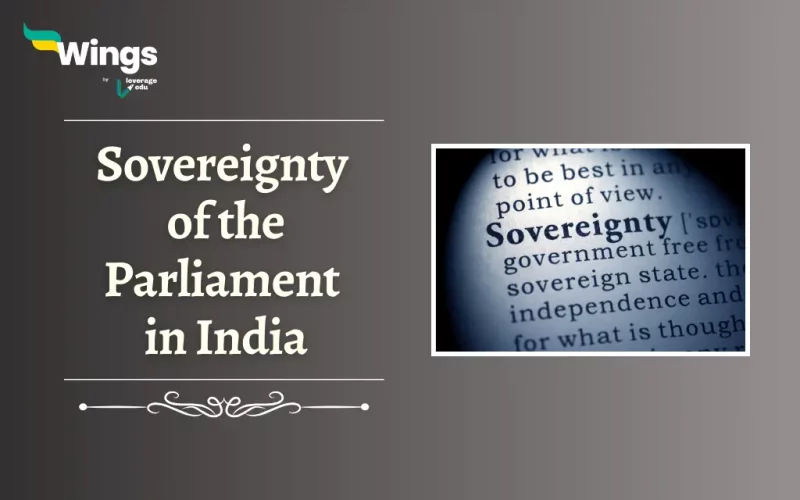Do you know Parliament holds the ultimate power in terms of enacting and repealing any law? Well, this is what we call the Sovereignty of the Parliament. There aren’t any legal restrictions against the Parliament on its jurisdiction. This translates to holding other branches accountable, restricting monarchs through a Constitution in the case of a monarchy, and most importantly, giving the Parliament the power to create and enforce laws without the fear of asking the other parties involved. Read on to learn more about what is the Sovereignty of the Parliament in India, the sovereignty of the Indian Parliament is restricted by and the Features of Parliamentary Sovereignty.
Also Read: 4 Types of Majority in Parliament in India
Table of Contents [show]
What is the Sovereignty of the Parliament?
By definition, Parliamentary Sovereignty means that the Parliament can enact or repeal any law because it is above the Executive and Judiciary. Furthermore, Parliamentary Sovereignty grants the Parliament the ultimate authority within a government.
In addition, the written constitution, Judicial review, Federal system, and Fundamental Rights restrict the Sovereignty of the Indian Parliament.
- The written constitution of India establishes a supreme legal framework that Parliament must stick to, hence limiting its legislative authority.
- Judicial review gives the Judiciary power to invalidate laws passed by Parliament if they are found unconstitutional, thereby acting as a check on legislative power.
- The Federal system distributes authority between the central government and the States. Thus, guaranteeing that certain powers are reserved for State governments and cannot be overridden by Parliament.
- Additionally, Fundamental Rights protect individual liberties and cannot be removed by parliamentary legislation. This ensures that the courts can strike down any law infringing upon these rights.
Also Read: What is Representative Democracy?
Features of Parliamentary Sovereignty
Moreover, Parliamentary sovereignty can be summed up with parliament at the top of the hierarchy. Additionally, this means:
- Ultimate Power in law: Parliament makes, changes, and repeals any law it sees fit, with no other government body able to stop them.
- Legislative Supremacy: Acts of Parliament are above everything else, including court rulings, common law, and even treaties.
- Free from rules: No constitution, past law, or a higher authority can restrict what Parliament does. Moreover, they can rewrite the rulebook at any time through regular lawmaking.
- Unlimited Jurisdiction: There is no limit to what the Parliament can control, from big policy decisions to the nitty-gritty of governing.
- Non-Intervention of Judiciary: Judges cannot challenge laws passed by Parliament, they just have to enforce them.
Also Read: 17 Salient Features of the Indian Constitution
Related Reads
FAQs
The core concept of parliamentary sovereignty is that no other branch of government can remove the parliamentary body of government.
The parliament of India holds the highest legal authority within the country’s legal system.
It was England that gave the concept of a sovereign parliament.
Well with this we come to an end of the sovereignty of parliament, and who restricts the sovereignty of the Indian parliament. We are sure you might want to dig deeper into Civics and Polity, so visit us now.
 One app for all your study abroad needs
One app for all your study abroad needs















 45,000+ students trusted us with their dreams. Take the first step today!
45,000+ students trusted us with their dreams. Take the first step today!
